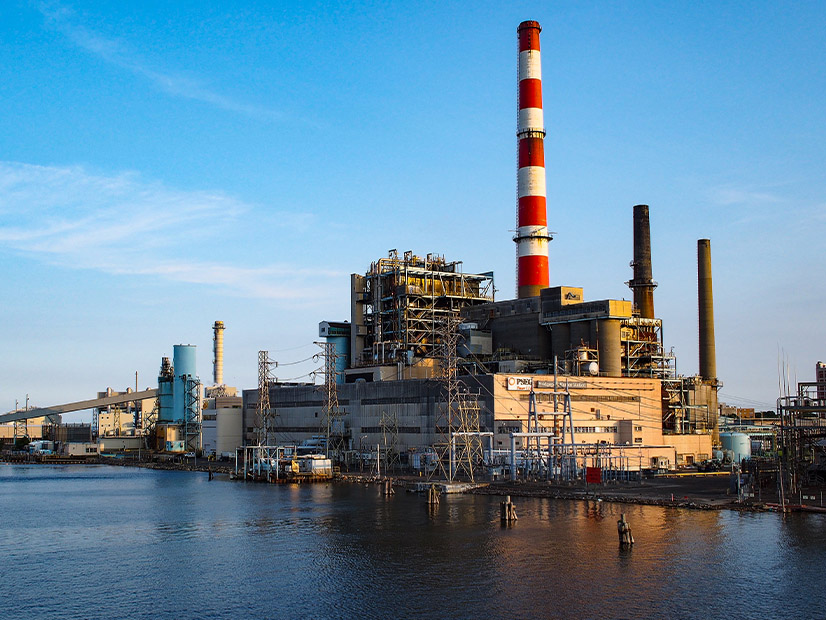
The City of Bridgeport wants to be an equity-focused spoke in a proposed Northeast Regional Clean Hydrogen Hub (H2Hub), community leaders told the Connecticut Department of Energy and Environmental Protection (DEEP) Wednesday.
“We are very interested in looking at what the supply chain is going to be for this hydrogen project and how our community fits into that,” said Adrienne Houël, CEO of Greater Bridgeport Community Enterprises.
In the process of preparing for an H2Hub, she said, Connecticut must consider the Biden administration’s Justice40 initiative and environmental justice principles when working with hydrogen partners.
The governors of Connecticut, New York, New Jersey and Massachusetts announced March 24 that they will work together, along with 40 hydrogen economy partners, to submit a proposal to the U.S. Department of Energy (DOE) for one of the H2Hub designations called for in the Infrastructure Investment and Jobs Act. A hub, as defined by the act, is a network of hydrogen producers, consumers and connected infrastructure in close proximity to one other.
DEEP held a public listening session Wednesday to gain insights on hydrogen opportunities in the state, including the H2Hub collaboration, for the 2022 update of Connecticut’s Comprehensive Energy Strategy.
In Bridgeport, a state-designated environmental justice community, 40 individuals and organizations representing different segments of the city’s communities formed a regional energy partnership last year. The group is building on the city’s 14-year sustainability journey with a mission to ensure that the benefits of energy development, such as an H2Hub, extend to energy-burdened communities, said Jefferey Leichtman, a consultant speaking on behalf of the Bridgeport Regional Business Council.
Development of a hub, Leichtman said, needs to ensure residents understand the benefits of any new technologies sited in their communities and that those benefits are well-documented.
Houël sees the Bridgeport regional partnership as a model that can be adapted for other communities in the Northeast if a H2Hub develops there.
The partnership “is structured around the idea that you want to get all components of the community involved and get them to focus on what the community needs are,” she said. To advance its mission of early education, the group is already planning a hydrogen economy briefing at the end of April.
“We can’t expect people, on our say so, to accept all of the different safety and environmental issues around clean energy production,” Leichtman said.
Hub Proposals
The four states participating in the Northeast H2Hub coalition have agreed to develop a hub proposal in collaboration with the New York State Energy Research and Development Authority. Individual state entities will be responsible for ensuring the proposal aligns with environmental justice and state-level climate goals. The New York Power Authority and Empire State Development will provide additional strategic direction to the coalition partners throughout the proposal development process.
Several other state partnerships are also underway.
Colorado, Wyoming, Utah and New Mexico announced plans in February to create the Western Inter-States Hydrogen Hub, and the governors of Oklahoma, Louisiana and Arkansas jointly announced their decision in mid-March to coordinate on a hub proposal. (See Mountain States Partner to Secure Hydrogen Hub.)
In the Midwest, a business alliance that includes Equinor and GE Gas Power said it will work with regional stakeholders on a “shared vision” for a hub in Ohio, Pennsylvania and West Virginia.
In Washington, lawmakers moved a bill quickly through the legislature that is designed to improve the state’s chances of receiving a hub designation. Gov. Jay Inslee signed the bill March 31. (See Green Hydrogen Bill Passes Wash. Legislature.)
Each hub designated by the DOE will demonstrate a “complete ecosystem of hydrogen,” including “production, processing, delivery, storage and end use,” said Brian Hunter, technology manager at the DOE Hydrogen and Fuel Cell Technologies Office. To ensure feedstock diversity, one hub must produce hydrogen from fossil fuel, one from nuclear power and one from renewable energy, but Hunter said DOE anticipates hub proposals will have a mix of the three technologies.
The agency received more than 300 responses to its H2Hub request for information, but there are still opportunities to provide input on the hydrogen funding opportunities, he said. (See DOE Gets Hydrogen Hub Advice from Industry and Others.)
Earlier this year, DOE launched H2 Matchmaker, a voluntary online tool to facilitate hydrogen team formation.
The interactive map contains details on self-reported producers, consumers and potential providers and operators, as well as other key entities and stakeholders, Hunter said.


